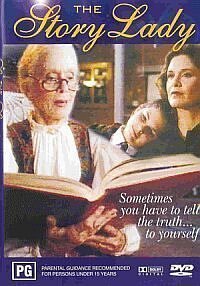
| None | Light | Moderate | Heavy | |
|---|---|---|---|---|
| Language | ||||
| Violence | ||||
| Sex | ||||
| Nudity |
Content:
(B, C, M) Prayer, compassion and integrity are stressed; however, shoplifting and lying is excused to get out of an evil situation.
More Detail:
Starring Jessica Tandy as Grace McQueen, THE STORY LADY tells about a retired widow whose daughter insists that Grace leave her home and her neighborhood and come live with her and her husband. Uncomfortable with being treated as a senior citizen, Grace looks for some type of work where she can be useful and discovers that she can read children’s stories on public access TV. She becomes a hit with latchkey children and, in particular, with a young girl, Alex, whose advertising mother executive discovers Grace and tries to turn her into a commercial product. Later, Grace breaks her contract and returns to her unassuming role as the “Story Lady.”
Incredibly well directed, THE STORY LADY is a film that tugs at your heart strings without ever becoming maudlin or melodramatic. The acting is superb, as is the dialogue. Not only is the premise of the triumph of love and integrity over commercialism worth hearing, but there are many other positive moral messages in the film such as “no one has ever wished that they spent more time on their work when they got older, but they have wished they spent more time with their family.” Instead of nudity, sex, or violence, there is prayer and compassion. However, to bring the story to a close, the screenwriter has Grace resort to a moral indiscretion to get out of her contract (the only loophole is the morals clause). This ends well, but this denouement could have been dealt with in a more moral and less pragmatic fashion.



 - Content:
- Content: 
